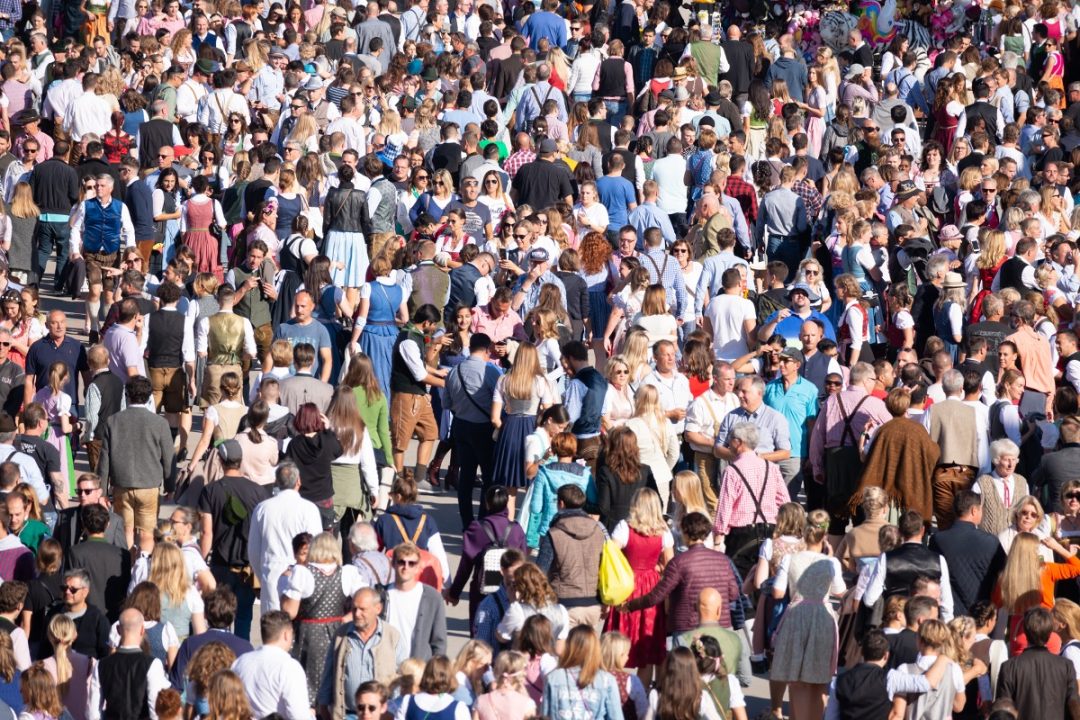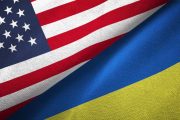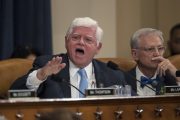
The Ukrainian government is mandating military approval for mass gatherings, according to Ukrainian media.
Ukrainian news outlet Ukrainska Pravda reported Thursday that the Cabinet of Ministers mandated that all crowd events from here on out must be approved by the military. The move was confirmed by multiple news outlets.
Prime Minister Yulia Svyrydenko signed the directive, which was sent to ministers, heads of central executive bodies, and the chiefs of regional and Kyiv city military administrations. The authorities justified the newest restriction under the banner of security — as they have every other restriction that has been implemented since the Russians invaded the country. Mykola Kalashnyk, head of the Kyiv Regional Military Administration, announced Thursday:
I inform you that this week I held another meeting of the Kyiv Oblast Defense Council, where, in the presence of heads of law enforcement agencies, district and community leaders, I conveyed the Government’s decision on the procedure for holding mass events — all events can only take place with the approval of the military command and taking into account security requirements.
Response to Protests?
The decree happens to come after large protests erupted around the country over an attempt by President Volodymyr Zelensky to put anti-corruption agencies under the control of his government. In July, Zelensky approved amendments placing the National Anti-Corruption Bureau (NABU) and Specialized Anti-Corruption Prosecutor’s Office (SAPO) in the hands of the general prosecutor, who is appointed by the president. Ukrainians saw that as a dangerous path to more power in the hands of a few and less power for the people. Large protests broke out in the capital, Kyiv, as well as in Lviv, Dnipro, and Odesa, over the matter. Backlash from the international community also ensued. Days later, Zelensky reversed the move. The agencies were created 10 years ago following pressure from the European Union to address the country’s endemic corruption problem.
Using the War to Crush Dissent
Ukraine has been under martial law since Russia’s invasion in 2022. The designation has allowed the government to level a tremendous number of changes and restrictions.
After Russia invaded, the Zelensky government eliminated non-government approved media. It combined Ukraine’s media outlets into one platform called “United News” and “suspended” private media companies. The justification for this was to have a “unified information policy,” autocrat-speak for rationalizing state-controlled propaganda. The Zelensky government additionally justified the move as a measure to counter Russian disinformation.
Zelensky’s martial-law decree also eliminated dissenting political parties, with Ukraine’s National Security and Defense Council banning 11 of them. The largest of these was the Opposition Platform – For Life, the second-largest party after Zelensky’s Servant of the People party. It held 44 seats in the 450-seat Ukrainian parliament. In 2024, Ukraine also banned the Nash Krai party, which had won 1,694 seats in regional administration. According to reports, “The activities of the political party Nash Krai were banned; the property, funds, and other assets of the party, its regional, city, district organizations, primary cells, and other structural units were transferred to the state.” The justification? Countering Russian influence.
Ukraine has also come down on freedom of religion. This isn’t a fake-news talking point from ultra right-wing podcasters. Ukraine has arrested and jailed several Orthodox priests. In August 2023, Anatoliy Yeletskykh was sent to prison for five years for “justifying Russian aggression,” a criminal offense. Earlier that year, in May, a Ukrainian court sent Orthodox priest Petro Huben to prison for three years for distributing Russian propaganda. Petro Lebid was put under house arrest for justifying Russian aggression. The Security Service of Ukraine has raided a number of churches and monasteries in search of Russian spies. It has harassed and jailed far more Christians than mentioned in this article.
Outlawing Elections
And, of course, in Ukraine, the war has provided a convenient excuse to outlaw elections. Zelensky’s five-year presidential term, which began in May 2019, was set to end in May 2024. The next presidential election was expected in March 2024, but martial law postponed it indefinitely. Ukraine’s parliamentary members don’t have to worry about elections, either.
Same as Russia
In Russia, authorities arrested thousands of protesters who didn’t approve their government’s invasion of Ukraine. In Russia, the government banned all “public actions aimed at discrediting” the Russian Armed Forces. In Russia, where Putin has served five terms, elections are rigged through coercion, media propaganda, and limited avenues for challenging results.
In an effort to defeat an enemy well known for its authoritarian tradition, Ukraine has essentially shown it is no different.
No elections, no dissent — that’s the state of Russia and Ukraine.
Despite Western media’s storyline to the contrary, the Zelensky government was never a Western-style liberal democracy. It has been, since its inception, a profoundly corrupt oligarchy with major ties to the American Deep State. We document this in TNA’s May 16, 2022 print issue titled “A War Between Two Villains?”
Western media has created a false image of Ukraine to create support for the war among the American people. As we said in May 2022, the true goal is to advance globalism, not to defend Ukraine’s fairy tale “democracy.”
American interests would be best served if the war were to end as soon as possible. The longer it continues, the higher the chances of escalation. And escalation into a world war would almost certainly draw in the United States. A world war could also lead to nuclear exchanges.
Of course, nuclear devastation would provide the kind of shock and devastation needed to soften people to the idea of world government.





